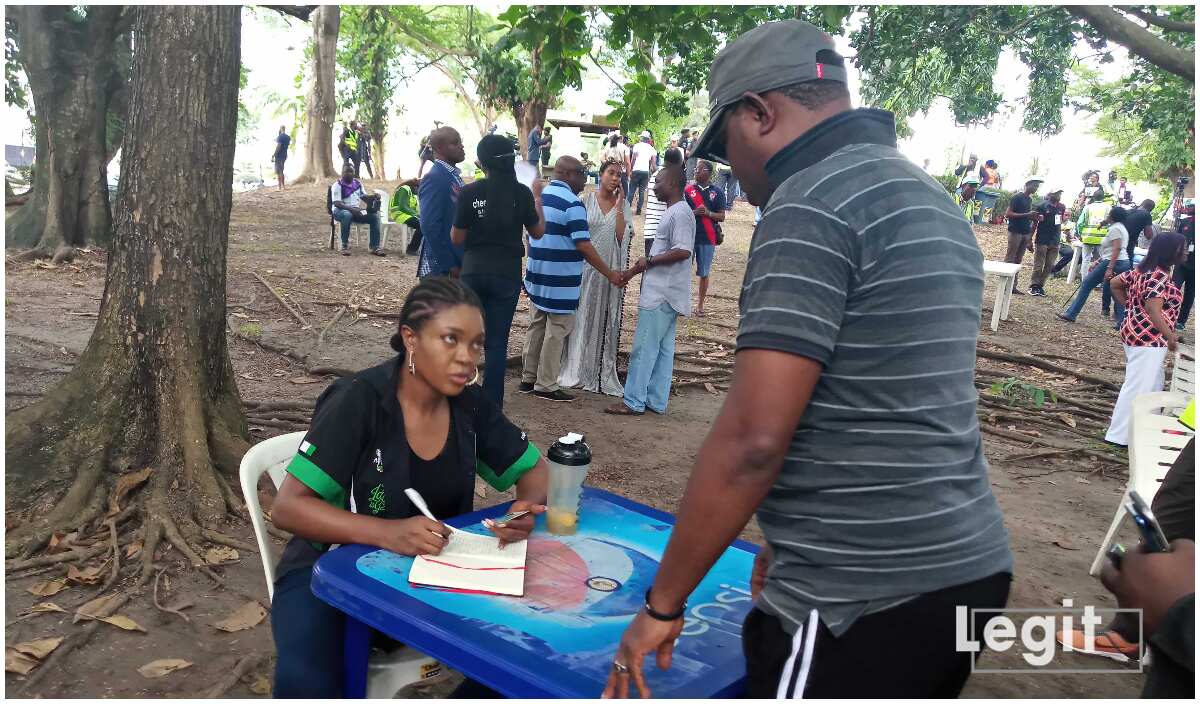The time to elect new leaders to direct the affairs of Nigeria is now and many of Nigerian celebrities are not left out.
Some of them are taking time on their social media handle to sensitise their fans on the on-going presidential election of Saturday, February 23.
While some of them have been involved in the electioneering campaign, some are actively involved as they are contestants and contenders in the election.
Davido who has been actively involved in the electioneering campaign since 2018 when his uncle contested on the platform of Peoples Democratic Party (PDP) in the gubernatorial election took to his Twitter handle to admonish the electoral commission, Independent National Electoral Commission (INEC).
PAY ATTENTION: Install our latest app for Android and read the best news about Nigeria
Curvy Nollywood actress Mercy Johnson-Okojie on her part enjoined Nigerians to vote and not fight. She told her fans that no politician is worth their blood so they she play safe.
Foluke Daramola-Salako is one actress who has been actively involved in the campaign for President Buhari’s re-election bid. She, as early as possible cast her vote and took to her Instagram handle to show off her voter’s card.
READ ALSO: Live updates of Nigeria’s 2019 presidential election
For mother of three boys, Omoni Oboli, she has been at her polling unit as early as 6am to cast her vote.
Legit.ng's eagle-eyed cameraman also caught Omoni performing her civic responsibility.

Omoni Oboli working on election day at her polling unit
Source: Original
Actress Kate Henshaw shared photos of herself on duty as an election observer alongside the former head of state General Yakubu Gowon. She also shared a video of people ready to cast their votes.
Nigerian music sensation 2baba Idibia who has for being the champion of the Vote Not Fight campaign shared a video of him observing his civic responsibility in Festac Town Lagos. He also showed off his voter’s card.
Well-endowed Nollywood actress Anita Joseph is not in Nigeria for the election, she is faraway in New York, US, but still took time to remind Nigerians and her followers to vote wisely.
Actor Saidi Balogun on his part decided to educate voters on what to do at the polling units while also showing his support for the ruling party, APC.
Legit.ng had earlier reported that there was a mild drama at the polling unit of the vice president, Prof Yemi Osinbajo, minutes after he had voted. The card readers deployed to the unit malfunctioned, preventing other individuals, including ANN presidential candidate, Fela Durotoye, from voting.
NAIJ.com (naija.ng) -> Legit.ng We have upgraded to serve you better
6 things that ‘may’ happen on Election Day | Legit TV
Source: Legit.ng
from Nigeria News today & Breaking Naija news ▷ Read on Legit.ng 24/7 https://ift.tt/2T6WOq5
via EDUPEDIA24/7
Very helpful post with informative informations blog site!!! We are a real-time news platform focused on serving the Nigerian audience and the world at large with verified and undiluted news reports. We cover breaking news and topics in areas of Business, Entertainment, People and Politics, Love and Romance, Technology and Life Style. Look at Nigerian newspapers today for real-time News update!!
ReplyDelete